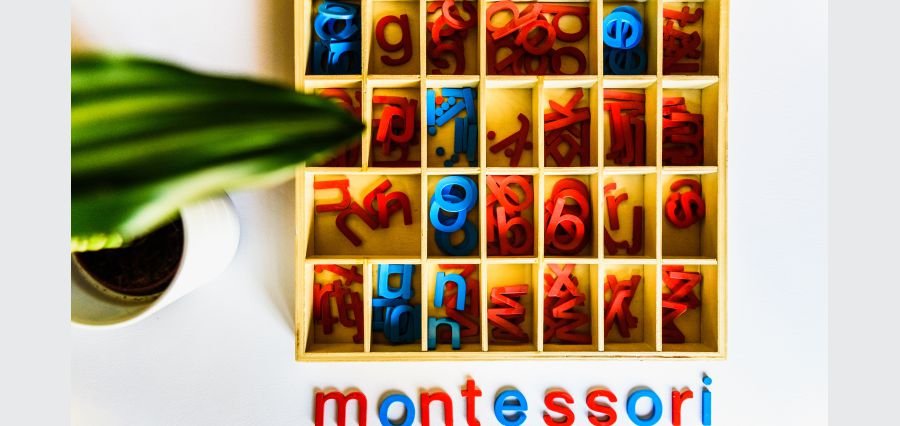The Montessori Method stands as a beacon of progressive education, offering a holistic approach that nurtures the intellectual, emotional, and social development of children. Developed by Dr. Maria Montessori over a century ago, this method has transcended time, resonating with educators, parents, and learners worldwide. In this article, we delve into the foundational principles of the Montessori Method and explore its enduring relevance in modern education.
Child-Centered Learning
At the heart of the Montessori Method lies a profound respect for the individuality and autonomy of each child. Instead of adhering to rigid curricula and standardized assessments, Montessori education embraces child-centered learning, allowing children to follow their interests, set their own pace, and discover the joy of learning through hands-on exploration and discovery.
Prepared Environment
The Montessori classroom is carefully designed to provide a nurturing and stimulating environment that fosters independence, creativity, and self-discipline. With meticulously crafted materials, child-sized furniture, and a sense of order and beauty, the prepared environment invites children to engage in purposeful activities and explore their surroundings with curiosity and confidence.
Multi-Age Classrooms
In Montessori classrooms, children of different ages learn together in a mixed-age environment, mirroring the diversity of the real world. This structure encourages collaboration, peer mentoring, and social interaction, as older children take on leadership roles and younger children learn from their peers. By fostering a sense of community and mutual respect, multi-age classrooms promote social-emotional development and empathy.
Freedom within Limits
The Montessori Method emphasizes the importance of freedom within limits, providing children with autonomy while establishing clear boundaries and expectations. Within the structured framework of the prepared environment, children are free to choose their activities, explore their interests, and work independently or collaboratively. This balance of freedom and responsibility cultivates self-regulation, decision-making skills, and a sense of ownership over one’s learning.
Holistic Development
Montessori education prioritizes the holistic development of children, addressing their intellectual, emotional, physical, and social needs. Through a balanced curriculum that integrates practical life skills, sensorial experiences, language development, mathematics, science, cultural studies, and the arts, children engage in a rich and interconnected learning journey that nourishes their mind, body, and spirit.
Respect for Nature and the Environment
The Montessori Method instills a deep respect for nature and the environment, fostering environmental awareness, sustainability, and stewardship. Through activities such as gardening, nature walks, and ecological studies, children develop a sense of connection to the natural world and learn to appreciate its beauty, diversity, and interdependence.
Lifelong Love of Learning
Montessori education instills a lifelong love of learning, nurturing children’s natural curiosity, creativity, and intrinsic motivation. By providing an environment that encourages exploration, experimentation, and discovery, Montessori education ignites a passion for lifelong learning and empowers children to become independent thinkers, problem-solvers, and lifelong learners.
Emphasis on Self-Directed Learning
The Montessori Method places a strong emphasis on self-directed learning, where children are encouraged to follow their interests and passions. By allowing children to choose their activities and pursue topics that captivate their curiosity, Montessori education fosters intrinsic motivation and a deep sense of engagement with learning. This approach empowers children to take ownership of their education and develop a lifelong love of learning.
Individualized Instruction
Montessori classrooms are designed to accommodate the diverse learning styles and abilities of each child. Teachers observe and assess each child’s progress, providing individualized instruction and support tailored to their unique needs. This personalized approach ensures that every child receives the attention and guidance necessary to thrive academically, socially, and emotionally.
Integration of Practical Life Skills
Practical life activities are integral to the Montessori curriculum, teaching children essential life skills and fostering independence, responsibility, and self-care. From pouring water and preparing snacks to cleaning tables and caring for plants, these activities not only develop fine and gross motor skills but also instill a sense of competence and confidence in children as they master everyday tasks.
Focus on Peace Education
Montessori education promotes peace education, teaching children the values of empathy, compassion, and conflict resolution. Through activities that promote cooperation, communication, and respect for others, children learn to navigate social interactions peacefully and build harmonious relationships with their peers. By fostering a culture of kindness and empathy, Montessori classrooms become nurturing communities where children feel safe, valued, and supported.
Parental Involvement and Partnership
The Montessori approach recognizes the importance of parental involvement and collaboration in children’s education. Parents are viewed as partners in the learning process, and open communication between teachers and families is encouraged. Through parent education workshops, family events, and home-school partnerships, parents gain insights into the Montessori philosophy and strategies for supporting their child’s learning and development at home.
Emphasis on Nature-Based Learning
Montessori education often incorporates nature-based learning experiences, recognizing the profound benefits of outdoor exploration and environmental education. Outdoor classrooms, nature walks, and gardening activities provide children with opportunities to connect with the natural world, cultivate a sense of wonder and awe, and develop an appreciation for the beauty and complexity of the environment.
Celebration of Diversity and Inclusion
Montessori education celebrates diversity and promotes inclusion, creating inclusive learning environments where children from diverse backgrounds feel welcomed, valued, and respected. Through multicultural curriculum materials, diverse literature, and celebrations of cultural traditions, Montessori classrooms foster a sense of belonging and promote cross-cultural understanding and appreciation.




